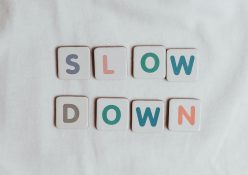Everything you need to know to keep your body looking and feeling great. By Tracy Branfield
Amino acids are the building blocks of proteins and our bodies need them for the optimal functioning of organs.‘The body can’t synthesise the nine essential amino acids, so we need to get them from our food, such as meat and plant protein,’ says dietitian Dr Christa North.
Body image
‘A positive body image is essential for improved self-esteem and confidence in all areas of your life,’ says clinical psychologist Pauline Mawson. Focus on three things you love about your body today.
Cooking
‘Cooking for yourself means you’re in control of how much fat and salt you add to your food, and will reduce the amount of processed food you eat,’ explains dietitian Nicola Drabble. Try your hand at the delicious recipes in Club every month.
Vitamin D
This neglected vitamin is crucial for strong bones, regular blood pressure and lowering your risk of cancer, heart attacks and diabetes. Up your D-fence with dairy or a daily supplement.
Essential Fatty Acids
‘Omega-3 and -6 fatty acids are not only important for building healthy cells, they also fight against heart disease and age-related brain decline,’ says Dr North. Fatty fish, such as salmon and mackerel, provide plenty of omega 3s, and you can find omega 6 in poultry, sunflower oil and nuts.
Fibre
Fruit, vegetables and whole-grains contain dietary fibre. ‘The body does not digest this fibre, but it is essential for a regular and effective digestive system,’ explains Nicola.
GI
The glycemic index (GI) is a ranking of foods based on their immediate effect on blood glucose levels. ‘Low-GI foods, such as dark, seeded breads and most vegetables, release their carbohydrates slowly and give you sustained energy, because you’ll have more stable blood sugar,’ explains Dr North.
Hydration
Every cell, tissue and organ requires water to function correctly, making it essential for health. Nicola suggests about two litres of fluids – including water, tea and diluted cordial drinks – per day.
Iron
Human bodies need iron to create oxygen-carrying red blood cells and without enough of it, you’re likely to feel tired or weak easily. Get this key mineral from liver, lentils, soybeans and molasses.
Juicing
Freshly juiced fruit and vegetables are a simple and tasty way to get in your recommended five servings per day. ‘However, the beneficial fibre is usually removed in the process,’ says Nicola. So go back to F to make sure you’re getting enough.
Kilojoule
A kilojoule (kJ) is the unit used to measure energy from food. ‘An average woman doing moderate exercise requires about 8 400 kJ a day and a man 10 500 kJ to keep their weight stable. To lose weight, decrease energy intake by about 2 100 kJ per day,’ advises Nicola.
Lifting weights
‘General exercise has many health benefits, but weight-training is especially effective for burning fat, sculpting lean muscle and making the body more resilient,’ says personal trainer Gordon Stevens. He recommends two or three strength sessions per week.
Metabolism
Your metabolism is the rate at which your body converts food into energy. Rev up yours and burn off weight by combining high-intensity cardio with strength training.
Nutritional supplements
‘If you have a balanced diet, there’s no need to take a supplement. However, most of us have pretty busy lifestyles, so it’s not always possible,’ says Nicola. Start taking a high-quality multivitamin and mineral supplement.
Outdoors
Fresh air oxygenates the body’s cells, resulting in improved energy, a clearer mind and reduced levels of the stress hormone cortisol. Sunlight also provides a dose of vitamin D by triggering its synthesis in the body.
Protein
‘Protein is an essential part of building and maintaining healthy muscles, skin, organs, blood and the immune system,’ explains Dr North. Every meal should therefore contain at least one portion of protein.
Quetelet index
The Quetelet index or body mass index (BMI) is a generalised measurement of your ideal weight for your height. BMI = weight (kg) / (height (m))2. A BMI of less than 18.5 is generally considered underweight, 18.5 to 24.9 lies in the ‘normal’ range, and anything over 25 is regarded as overweight.
Relaxation
Stress raises levels of cortisol, which can have harmful effects on the body, including weight gain. Try doing deep breathing or meditation exercises to help recover from strenuous physical activity or stressful situations.
Sunscreen
The skin is the body’s largest organ and it deserves daily protection from dangerous UV rays. Sun damage not only speeds up ageing, it can also cause skin cancer. Be sun savvy by wearing a sunscreen with a minimum SPF of 15.
Toxic ingredients
Cut down on food that contains these harmful additives: sodium nitrate, trans fats, partially hydrogenated vegetable oils, some artificial preservatives and colours, and refined flour.
Urinary tract health
The kidneys, ureters, urethra and the bladder are all indispensable for waste removal and a healthy blood system. Keep urinary tract infections at bay by drinking cranberry juice or a brew of our local buchu tea.
Variety
‘The greater the variety of food you eat, the more likely it is you will meet your body’s requirements of vitamins, minerals, proteins, carbohydrates and fats for proper functioning,’ explains Dr North. Eat different-coloured fruit and vegetables and include food from all five food groups.
Wholegrains
‘Wholegrains contain all the naturally occurring nutrients of the entire grain seed in their original proportions,’ says Nicola. She recommends eating wholewheat pasta, bread or cereal to regulate bowel movements.
Xylitol
Xylitol is a natural sugar alcohol that is found in many fruit and vegetables. ‘It contains about 30 to 40% fewer calories than sugar, so it is very widely used as a sweetener,’ says Nicola.
Yo-yo dieting
‘Constant drastic changes in your diet can permanently slow down your metabolism and you’ll soon gain the weight back. In time, this increases your risk of developing heart disease, cancer and diabetes,’ cautions Dr North.
ZZZs
Getting six to eight hours of sleep every night is vital for a healthy lifestyle. Sleep can benefit your mind by improv-ing memory and sharpening concentration, your body by inhibiting inflammation, and your weight by balancing out appetite hormones.








